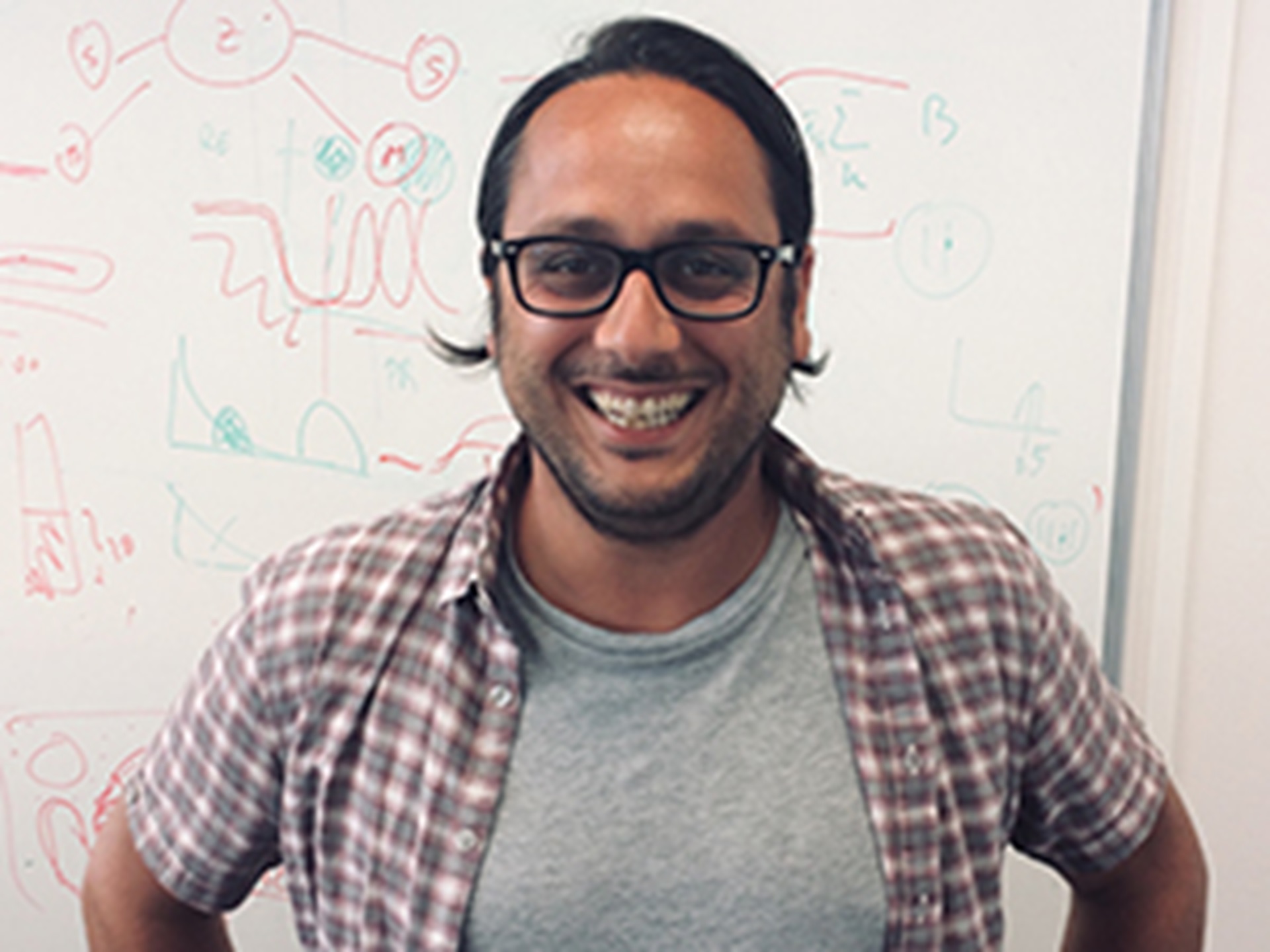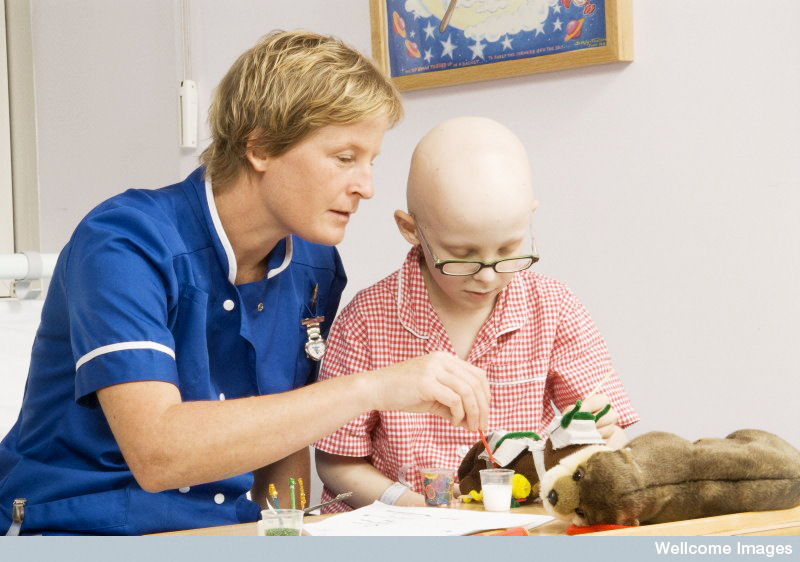Dr Giulio Caravagna is a Post-doctoral Training Fellow at The Institute of Cancer Research, working in Professor Andrea Sottoriva's Evolutionary Genomics and Modelling team, and jointly supervised by Professor Louis Chesler, Professor of Paediatric Solid Tumour Therapeutics.
Dr Caravagna develops new data science methods and software tools to measure the dynamics of cancer evolution – analysing the high volumes of genetic data we are able to obtain through next-generation DNA sequencing.
Talk us through your typical day
I work in the ICR's Sutton site, commuting from elsewhere in South London. I do not come in super early but I am definitely one of the last to leave. I try every day to work on a couple of different problems, but I invariably get stuck and end up working on a single one.
My usual day combines some paper reading, developing some new thoughts on the analysis that I am about to run, and writing some code for the tools that I am developing. I have quite a number of UK and foreign collaborators, with whom I talk on Skype while sipping coffee in the ICR atrium or in any of the available meeting rooms.
How does your work contribute to our mission?
In my work I develop new computational methods that, from molecular sequencing data, will allow us to increase our understanding of what dynamics drive cancer, and how cancer originates, progresses and spreads to other organs.
We aim to use this information to implement better strategies to tailor a treatment to a patient – in what is known as precision medicine – to stay one step ahead of cancer and help us anticipate therapeutic failure.
What big projects are you working on?
As a computational scientist I am involved in several projects, all revolving around a key problem of cancer evolution: how do we extract evolutionary trajectories from cancer sequencing data? This is actually a collection of problems studied in the Sottoriva lab, which I approach by combining modelling with Machine Learning.
I am currently driving the development of a new method to measure how many distinct sub-clones populate a tumour, using genome sequencing data. This is important because it tells us how a cancer is growing and how it is organised in space.
I apply this and other methods within the ICR and in collaboration with Genomics England – a collaborative large-scale NHS initiative that seeks to exploit high-resolution whole-genome sequencing to deliver better, earlier diagnosis and personalised care.
I am also involved in a Cancer Research UK and Italian Association for Cancer Research international project to track cancer cell evolution in organoids, where single-cell sequencing will be used to unravel mechanisms of drug resistance, and to predict the best treatment options for cancer patients.
Your work in a tweet
Cancer data science to quantify evolutionary forces that shape tumour progression and therapy response!
What are you most proud of?
Some of my recent works have obtained quite some visibility, which is important for outreach. I am very happy that this is happening for two reasons.
First of all, it pays off all the effort that we put into work. Second, it puts the computational parts of our investigations under the spotlight. This is important, because in my opinion computational methods are increasingly crucial to make sense of sequencing data, especially in the context of a complex disease like cancer.
From this point of view, the Sottoriva lab and the Centre for Evolution and Cancer are pioneering the integration of computational methods with advanced experimental designs, which is one of the reasons that brought me to the ICR.
Can you give us any examples of where you see the ICR's values in your work?
I like working in collaboration with other scientists, and I try to foster collaborations inside and outside our institute.
Teamwork is crucial, I learn fast talking with great colleagues and this is an essential element to the study of cancer. Together, we can pursue excellence in research and lead innovation in the field.
How do you collaborate with colleagues at the ICR?
My colleagues are an essential part of my experience at the ICR. We exchange ideas and opinions, and their help is always useful. When I talk with other bioinformaticians, I get stimulated to think about my data in different ways, finding new ways out of problems, and progressing towards the creation of my tools.
When I talk with molecular biologists who create the data that I will analyse, I learn new biology and think how we could work together to understand cancer dynamics.
What makes you want to work for the ICR?
The vision of a place like the ICR and its Centre for Evolution and Cancer. This Centre has had leaders in the field of cancer evolution since its earliest days, and the laboratory of Andrea Sottoriva is the best place possible to train on the integration of computational analyses with cancer evolution.
We will soon be moving into the new Centre for Cancer Drug Discovery – the first place in the world to specifically bring together cancer biologists and evolutionary science under one roof – and I am looking forward to being part of that effort.

.jpg?sfvrsn=ae545a01_2)
